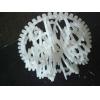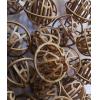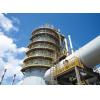Properties of Silicone Rubber
- The outstanding property of this form of rubber is its very wide temperature range. It offers excellent resistance to extreme temperatures, the range of which can be from minus 100°F to plus 500°F.
- It has better oil and water resistance than the others.
- Because of its compatibility with varied temperature range, the tensile strength, elongation, tear strength and compression set of this rubber can be far superior to conventional rubbers.
- It is susceptible to ozone, UV, heat and other aging factors.
- This rubber is resistant to steam.
- It is metal detectable.
- It glows in the dark.
- It is electrically conductive.
- It is resistant to chemical/oil/acid/gas resistance.
- It has low smoke emission and flame retardant.
These rubber can be extruded into tubes, strips, solid cord or any custom profiles according to the size specifications of the manufacturer. Cords can be joined to make o-rings. Extruded profiles can be joined to make seals. Silicone Rubber can also be moulded into custom designs and shapes. This form of synthetic rubber is available for making molds that are poured, brushed or sprayed on to a model and has performance characteristics that is not available in other molded rubber. High temperature resistance makes this rubber the only mold rubber suitable for casting low melt metal alloys like lead, tin, pewter. It is also used in the production casting of resins.
- High and low temperature stability
- Inertness, that is no taste or smell
- Translucent and easy to color
- Wide hardness range
- Chemical resistance
- Weatherability
- Sealing performance
- Electrical properties
- Compression set resistance
- These rubber is generally high in cost.
- It is sensitive to substances like sulfur clay that may prevent the silicone from curing which is known as cure inhibition.
- This rubber is usually very thick, having high viscosity.
- It must be vacuum degassed before pouring to minimize bubble entrapment.
This rubber is available in the following forms:
- Compounds: These are ready to use materials which can be pigmented and catalyzed for your processing equipment and end application.
- Bases: These silicone polymers contain a reinforcing filler. The bases can be further compounded with additives and pigments that produce a compound which meet your color and other fabrication needs.
- Liquid silicone rubber (LSR): This rubber system can be pumped into a suitable injection molding machine which then can be heat cured to produce molded rubber parts.
- Fluorosilicone rubber compounds and bases: They maintain many key properties of silicone, but also has other characteristics of superior chemical, fuel, and oil resistance.




